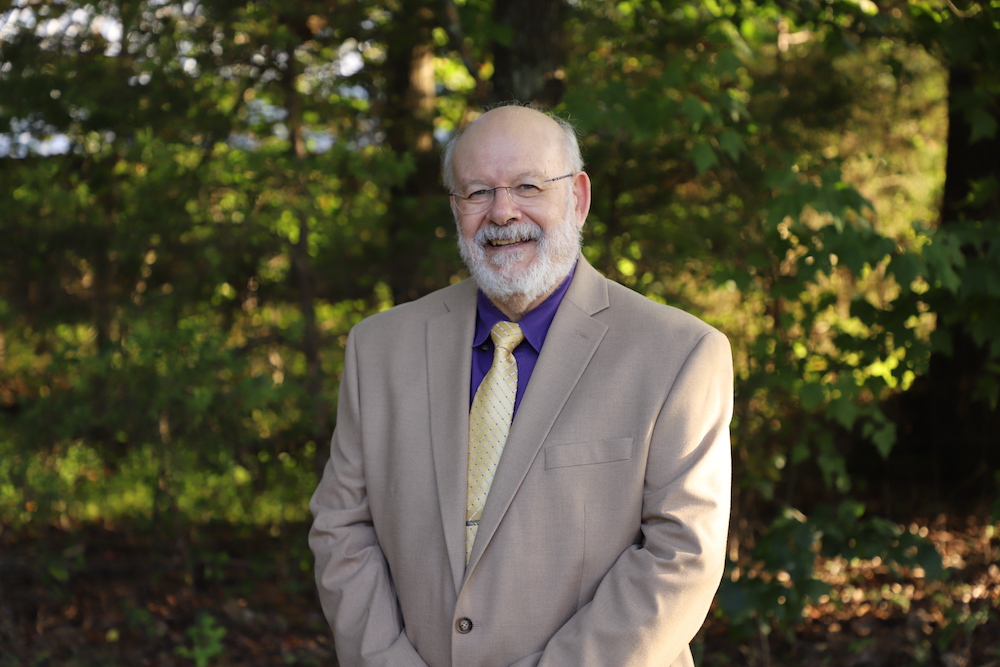Scholar-Mentor Award winner puts students in the driver’s seat of their education

This annual award honors a faculty member who displays outstanding mentorship, integrating scholarship, research and teaching excellence.
“When you're honored by a committee of peers – and this is one of the wonderful characteristics of this award: you’re judged by eight to 10 peers, including staff members, across the university– to me, these are the most significant awards,” Arce said. “It’s empowering to be honored with an award when your peers recognize what you do. So, when I found out I was selected for this award, I felt extremely privileged but also grateful to all of these colleagues.”
Arce’s passion for mentoring came from his own experience of having a mentor while he was an undergraduate student in chemical engineering at the Universidad Nacional del Litoral in Santa Fe, Argentina. His professor, Eduardo Lombardo, had a huge impact on his college experience by not just teaching him, but guiding him to take responsibility for his own education.
“I realized that what Professor Lombardo did it was a very powerful avenue for students to really find their own way,” Arce said. “I thought that, if I had an opportunity, I would like to do for my students something like what this wonderful mentor had done for me.”
When Arce started teaching and mentoring students, he applied just that approach. He wanted to make sure his students were in the driver’s seat of their own education and had a clear vision of what they wanted to accomplish. From the first time he meets his students, Arce starts talking to them about what they want to achieve and helping them identify the barriers to their goals. Then he helps equip the students with the tools to start dissolving those barriers.
“Like in a chemical reaction, I like to act as a catalyst of their transformation. As they realize they are able to really do these things, they develop their confidence to learn the material and apply it on their own. Thus, they become owners of their education and learning. That, to me, is the most rewarding aspect,” Arce said.
His former students have gone to take leading positions in private and national organizations and several of them serve in academia with distinction in the USA and South America.
He has spearheaded the creation of the Renaissance Foundry Model, which seeks to provide a constructionistic-centered, collaborative-focused, and interdisciplinary-based approach in courses, projects, and programs to give students critical thinking, leadership, and team-based skills in what Arce calls “a new type of engineer.” Arce wants to see more people in his field who are holistic, innovative, socially impactful, and have an entrepreneur mindset.
The model is named after the people of the Renaissance who were able to make huge impacts on their society and it is a product of Arce’s interdisciplinary collaboration with colleagues in business, education, nursing, chemical engineering, and the Center for Assessment and Improvement of Learning from Tech. He is grateful to the university QEP program, the TBR SERS grant program, and the Steelcase and the VentureWell foundations that have provided continued support for the development and assessment.
“The reason that the renaissance innovators were able to achieve that was because they had tremendous mentors through their life and a personalized education,” Arce said. “One of the reasons I came to Tennessee Tech was because I found the philosophy and focus of the university is basically centered around the student, which is one of the aspects that I always dream about, but in higher learning organizations you don’t always see that. The Tennessee Tech philosophy is actually built around the students, always striving for a wonderful balance between different aspects related to teaching, research and service.”
The parallelism between the population of students from rural and economical challenging regions that Tech serves and his farming community origin, from his native Argentina, was another significant factor that was attractive to him.
The Tennessee Tech Scholar-Mentor Award follows other recognitions that Arce received because of his effort on developing the Renaissance Foundry Model and the new type of engineering professional. These include several distinctions from the American Society for Engineering Education (ASEE) and the 2021 Outstanding Chemical Engineer Alum Award from his alma matter, the David Davidson School of Chemical Engineering, Purdue University. Arce feels privileged that his alma matter recognizes his educational effort that has impacted many students at Tennessee Tech, and it is only given to a selected group of its alumni.
Arce thanks J. Robby Sanders, associate professor of chemical engineering at Tech, for nominating him for the Scholar-Mentor award, as well as J. Biernacki, TTU Distinguished Faculty Fellow and professor of chemical engineering and all his former students who supported his nomination.
“You need a village to win this award. You really need to have a motivating environment, supporting colleagues, committed students and collaboration, and I believe this is one of the wonderful things about Tennessee Tech. There are extraordinary colleagues, working daily with their students to improve, document and move forward this holistic type of education,” Arce said. “I'm extremely honored to be recognized by my peers here at Tennessee Tech. Thank you.”

